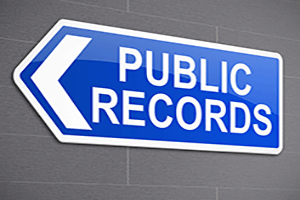
Georgia Public Records
Public records are records of events in a person's life that are recorded by the government. These include criminal records, civil records, vital records, driving records, court records, and more.


Georgia criminal court records can be accessed throughout the entire state with a simple name search. These records, which are made publicly available, offer insights into a person's criminal history. These records include a multitude of various records, from criminal court proceedings which include misdemeanor and felony cases, to convictions and sentencing records. These records can be accessed by anyone without needing expressed permissions, as outline by state and federal laws. The begin your Georgia criminal records search, simply enter the first and last name into the search fields, and select the records you would like to view.
Criminal records in Georgia, like in other states, are a record of a person's journey the criminal justice system and their respective convictions. These records are often used for employment, housing, and other background checks, making them one of the most significant parts of someone's public identity. Understanding the various types of criminal records, the distinction between felonies and misdemeanors, and their implications are important to understand. A person's criminal past will follow them around and can have adverse effects with future opportunities.
Criminal records in Georgia are categorized based on the nature of the crime, the court process, and law enforcement involvement. Each of these records serves a different function in documenting criminal history, and the type of record impacts how accessible it is to the public. Common types of records include:
1). Arrest Records: These document instances where a person has been detained by law enforcement but have not necessarily been charged or convicted of a crime. An arrest record includes details about the individual, the reason for the arrest, and any charges filed.
2). Conviction Records: Conviction records reflect cases where an individual was found guilty of a crime after a trial or a plea deal. These records show the type of crime committed, sentencing information, and whether the individual served jail time, probation, or paid fines.
3). Court Records: Court records include the official documentation from criminal court proceedings. These documents typically include the charges, court rulings, evidence presented, and the outcome of the case, whether it was a conviction, acquittal, or dismissal.
4). Incarceration Records: These records indicate the time an individual has spent in jail or prison, detailing the duration and location of incarceration.
5). Sex Offender Registry: In Georgia, individuals convicted of certain sexual offenses are required to register as sex offenders. The registry is public and includes identifying information, photos, and details about the offense committed.
6). Probation and Parole Records: Probation records indicate when someone has been sentenced to community supervision instead of jail time, while parole records show if someone has been released from prison under specific conditions before completing their full sentence.
7). Arrest Warrants: These are issued by a judge because of an alleged crime of a wanted individual. There must be strong evidence for these to be issued and the person of interest is to be arrested immediately and arraigned in court.
In Georgia, crimes are divided into two major categories: felonies and misdemeanors. Understanding the differences between these categories is quite large, as they have significant legal and societal consequences.
Felonies: Felonies are the most severe type of crime and are typically punishable by more than one year of imprisonment, fines, and other long-term penalties. Convictions for felonies often carry lifelong consequences. For example, individuals convicted of felonies may lose certain civil rights, such as the right to vote, hold public office, or own firearms. Additionally, they may face significant challenges in finding employment, housing, and financial opportunities due to the stigma associated with a felony conviction. Felony crimes in Georgia include; aggravated assault, armed robbery, drug trafficking, burglary.
Misdemeanors: Misdemeanors are less severe crimes compared to felonies and are generally punishable by up to one year in county jail, fines (typically under $1,000), restitution or community service. Despite being considered less severe, misdemeanors can still result in jail time, financial penalties, and a criminal record that may impact an individual’s life. However, the societal and legal consequences of misdemeanors tend to be less long-lasting than those of felonies. Examples of misdemeanor offenses in Georgia include; simple assault, disorderly conduct, shoplifting, DUIs, reckless driving.
Criminal records are considered public information in the state, meaning that anyone can access them under certain conditions. However, there are specific processes to follow depending on the type of record you are seeking. To run a Georgia criminal records search it's important to define what types of records you are looking for and what your intended uses are for them This will determine what resources you should use for your research. Here is an outline of the various online resources that are publicly accessible.
1). Criminal History Search: This is an online tool managed by the Georgia Bureau of Investigation (GBI), allowing individuals to search for criminal history records. This means that you can see all the criminal convictions that occurred within the state. A small fee is required to access the records through this service.
2). Department of Corrections (GDC) Offender Search: The GDC provides a tool to search for individuals who are currently incarcerated, on probation, or on parole. The search results include details about the individual’s incarceration status, criminal offenses, and prison sentence.
3). Local Law Enforcement: Individuals can also request criminal records from local police departments or sheriff’s offices. However, this typically requires submitting a formal request and may involve fees depending on the jurisdiction. These records are also sometimes just regional, as they may not have statewide conviction information available, just in their county.
4). Department of Health Services (DHS): This state run agency offers official fingerprint criminal background checks for a fee. The DHS service is intended for obtaining a criminal background check for official purposes, such as employment applications, security clearances, and other official reasons. You will need to get fingerprinting for this services and a means for official identity verification.
5), Third-Party Websites: Various private companies provide access to public criminal records for a fee. These sites aggregate public data and can provide comprehensive background checks, including arrest records, convictions, and court records. These are convenient online services. Users can run a comprehensive criminal history check on anyone and get results within minutes. Another benefit of these is you can get nationwide results. That way if someone also has a criminal history in another state, that will show up as well.
In Georgia, the process of expungement is also known as record restriction. Expunging a Georgia criminal record means to have a criminal conviction removed from public view, making it easier for them to move forward without it showing up on a background check.. However, you must first find out if that record is eligible for expungement. The next step is to petition to the courts to have that record expunged. There will be requirements to be met such as completing any sentence, restitution, fines, and probation. Then if all the requirements are met and the judge signs off on it, that record will be sealed from public view.
A quick and easy way to verify someone's criminal history record is to use a public records site. These resources offer fast results and anonymous searching. You will be able to find out everything in someone's criminal history including all felonies, misdemeanors, DUIs, and criminal infractions. This is an easy way to find out the truth about anyone's past without anyone knowing you are looking them up.


Public records are records of events in a person's life that are recorded by the government. These include criminal records, civil records, vital records, driving records, court records, and more.

Arrest records are a the documentation of someone's apprehension by law enforcement for an alleged crime. These records include police arrest reports, mugshots and booking information.
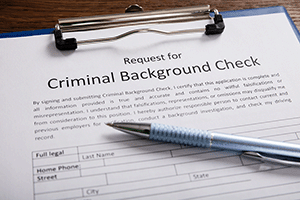
A background check is a complete history of someone's recorded history. The include all criminal records, civil records marriage and divorces, driving records, judgments and lien records.

There are two common types of warrants in Georgia, the arrest warrant and bench warrant. While they are both court issued order, one is for arresting someone for an alleged crime, and the other for a missed court appearance.

Incarceration records include a person's criminal convictions, court case records, jail and prison records. These records, as well as inmate records are considered public record that can be accessed by anyone online.
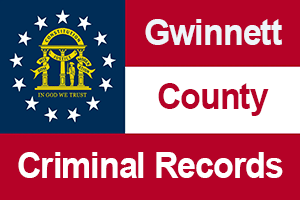
Gwinnett County GA criminal records can be accessed through both county and state database resources. You can access a person's complete criminals history, convictions, incarcerations, parole and probation order online with a simple form submission.
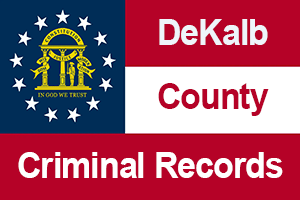
DeKalb County, comprised of 13 cities, is one of the largest communities and has one of the most complex criminal justice systems in the state. To access criminal justice records in DeKalb County, you only need a first and last name.
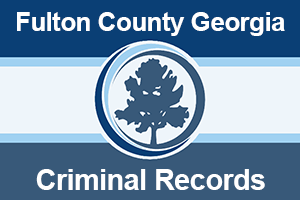
Fulton County, the largest county in the Georgia, also has the most amount of criminal convictions and incarcerations in the state. From arrests, to criminal court records, convictions and incarcerations, these are all public records that can be looked up online.
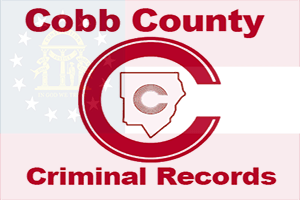
Cobb County Georgia, located in the north central portion of the state, has a user friendly criminal justice system that allows public access to lookup criminal records, and run background checks using various county resources.
DISCLAIMER: CriminalRecords.us aims to offer convenient, affordable, and timely access to public records generated by government entities. CriminalRecords.us is an independent service and is not connected to or endorsed by any federal, state, or local government or agency. As we are not the original source of the information provided through CriminalRecords.us, we cannot guarantee the accuracy, completeness, or currency of the information. CriminalRecords.us is not a consumer reporting agency as defined by the Fair Credit Reporting Act (FCRA), 15 USC § 1681 et seq. The information provided on this site cannot be used to determine an individual's eligibility for personal credit, employment, tenant screening, or any other purposes defined under the FCRA. Misuse of information from CriminalRecords.us for purposes such as stalking or harassment may result in civil and criminal penalties. By using CriminalRecords.us, users agree to comply with our terms of service and privacy policy, and acknowledge that they will not use the information for any purposes governed by the FCRA.